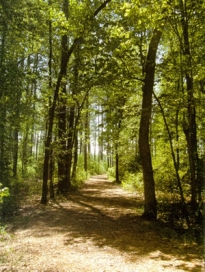The Canadian governments, and other relevant agencies, have increased concerns about individual and community preparedness for disasters, which are defined as the impact from natural hazards, technological hazards or conflict (not including war). Wildfires are particularly worrisome because they have affected 250 communities and 700,000 individuals in Canada (from 1995-2005). Disaster mitigation, which is incorporated under the role of the Canadian government, emphasizes actions that reduce or eliminate these impacts. Building resilient communities is a major theme of Canada's national mitigation policy. National (Emergency and Disaster Preparedness, Canada) and international governments (US Disaster and Terrorism Branch) and international agencies (Australian Red Cross) have expressed the need for more specific information about community-level responses among communities that experience disasters such as wildfires but there remains a paucity of research on this topic among rural communities that experience disasters. The concept of resiliency is used within disaster services to articulate the capacity building that occurs despite the impact of the disaster.
The purpose of this ongoing research program is to understand the human and social dimensions of the impacts of wildfires. We are examining the theoretical framework of community resiliency and its usefulness in understanding how individuals, families and communities respond to the impacts of wildfires.
Some of the things we are examining include what local social and institutional dynamics and structures contribute to resiliency of communities? What does resiliency look like at the individual, household or collective levels? 
Studying these types of questions in rural communities in various locations of Western Canada that have experienced wildfires helps us to generate information about rural communities in general and about their social dynamics. We already know that rural communities lack infrastructure, resources and support compared to urban contexts. Examining rural community response to adversity can assist us in understanding their abilities to address adversity and in so doing achieve sustainability.
In order to meet the objectives of our research objectives, we have worked with several rural communities that have experienced wildfires. We have been able to work with their local governments and residents to plan and implement the research projects. In each community, we have local advisory boards that assist us in making sure that we do is appropriate for the local community context. We also work with non-profit groups that assist communities deal with disasters as well as appropriate government and non-government decision makers to help ensure that our findings are translated into useable and useful products. Through the research we have conducted at each of our community sites, we have learned a great deal about community response to adversity, the importance of working together in rural communities and the significance of working with rural communities to generate findings that can lead to appropriate policies and programs. We have shared this information with them as well as with agencies in Canada and abroad; continued dialogue about these issues is always welcome. Please feel free to contact us at wildfire@uleth.ca